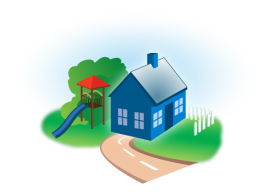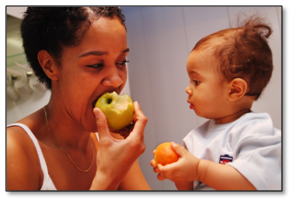
Early Childhood
Early Childhood & Daily Routines
Many families with young children find routine daily tasks challenging. These tasks can be even more difficult if your child has a developmental delay, a disability or a special health care need. On this page, you can find tips and strategies to help you and your child with these routines so that you feel more prepared to respond to your child’s individual needs, and so your child can gain more independence in these daily tasks

Sleeping
Did you know that it is estimated that 43% of all children and 86% of children with developmental delays experience some kind of sleep difficulty? Sleep is just as important as food, water and safety for children. Sleep is critical for a child’s healthy growth and development. But how do you help your child develop good sleep habits? How much sleep does your child need?
Feeding

Whether you have a picky eater, a messy eater, or a child whose special needs or behaviors just makes mealtimes challenging, you know how important it is to get him or her to eat . . . and to eat healthy foods. What can you do to make mealtimes more enjoyable and calm for your child, yourself and the rest of your family?
Tips for Mealtimes and Snacktimes
Dining Out with a Child with Special Needs
10 Ways to Help Your Child Eat Neat
Emotional-Social Development
Babies and young children learn about the world from the relationships they have. It is the way they learn and develop social emotional wellness, which includes the ability to play, communicate, learn, face challenges, and experience emotions.
Tips for Promoting Emotional Social Development
Listen to a podcast: Dr. Ross Thompson describes how early emotional development unfolds and what parents can do to nurture their child’s social and emotional skills starting at birth.
Visit the Center on the Social and Emotional Foundations for Early Learning for information on everything from supporting your child’s confidence and relationship building skills to tips on temperment and getting your baby to sleep.
Self-Care: Dressing, Bathtime, Toothbrushing

Teaching your child to be independent in daily routines like dressing, brushing teeth, handwashing and bathing takes a lot of work! How do you get started? How do you know if your child is ready? What can you expect of your child at different ages?
Teaching your Child to Become Independent with Daily Routines
Toileting

Children with disabilities are all different and so are their needs when it comes to toilet training. Your child may find learning to use the toilet harder because of physical, behavioral, learning or sensory differences that are a part of his or her developmental delay, disability or special healthcare needs. So how do you make learning this important skill easier for your child?
Toilet Training Children with Special Needs
Toilet Training Children with Developmental Disabilities